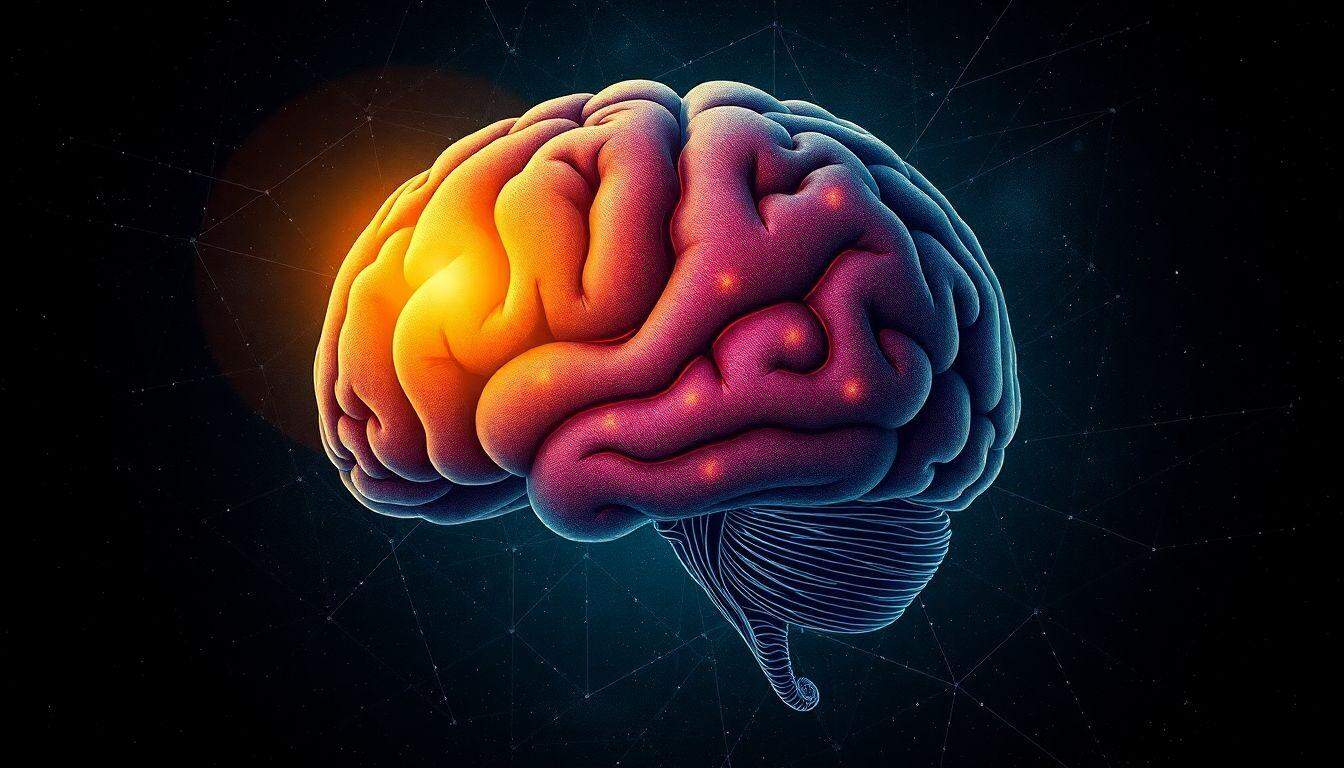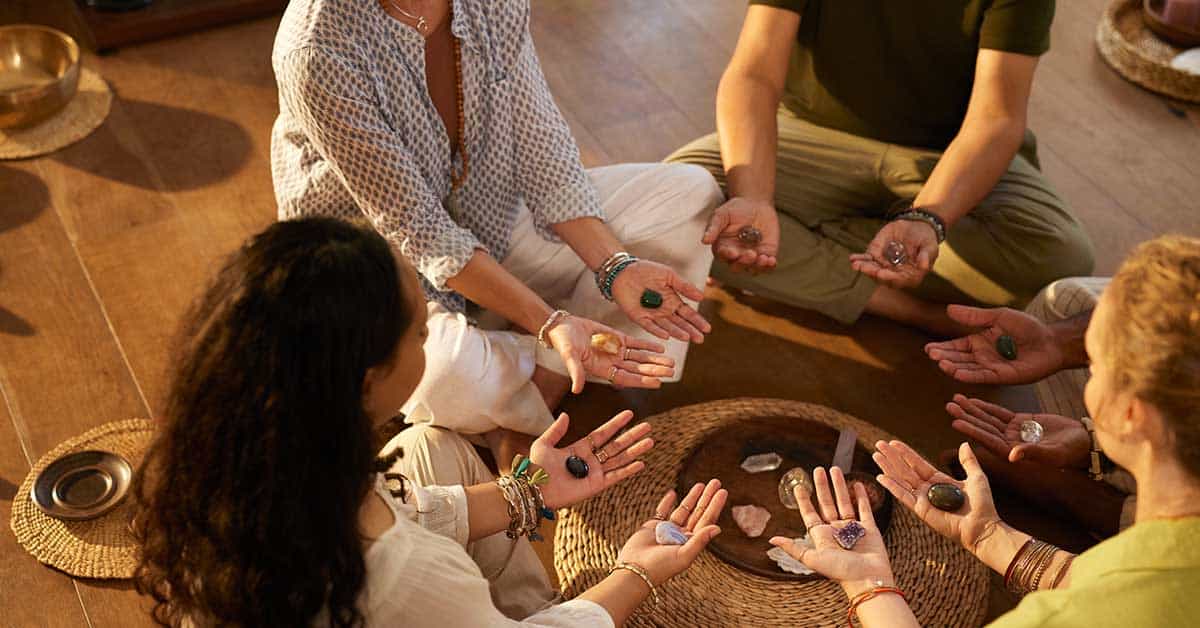Table of Contents
Intuition often finds itself in the crosshairs of skepticism and reverence, depending on whom you ask. The science behind intuitive readings is both complex and fascinating, offering a unique blend of psychology, spirituality, and neuroscience. While traditionalists may dismiss intuition as mere coincidence or luck, modern science suggests there’s more to it. Intuition is not a mystical power reserved for the clairvoyant; it is a skill, one that can be honed and utilized to enhance decision-making and personal growth.
Understanding Intuitive Readings
Discover the science and benefits of intuitive readings and how they can enhance your life. – Intuition is a subconscious process that helps you make quick decisions based on past experiences and knowledge, often described as a “gut feeling.” – The science behind intuition involves neurological and psychological factors, suggesting that intuitive readings can provide insights by tapping into both emotional and rational aspects of the mind. – Developing your intuition can lead to improved decision-making, increased self-awareness, and enhanced emotional intelligence, offering a holistic approach to personal growth.
What Is Intuition?
Intuition is often described as a gut feeling, a snap judgment, or an inner voice that guides decisions without the need for conscious reasoning. It is the brain’s ability to synthesize information from past experiences, emotions, and environmental cues, often in a split second. This automatic processing can feel like magic, yet it is firmly rooted in the brain’s architecture.
Imagine standing at a crossroads, both literally and metaphorically. You have two paths before you. One seems familiar; the other, less traveled. Your heart quickens as you consider the unfamiliar route. This is intuition at play, nudging you toward a decision based on subconscious processing of past experiences and current cues.
Insider Tip: According to Dr. David Myers, a renowned psychologist, intuition is a real psychological process that emerges from our capacity to think without thinking. He suggests that by becoming more attuned to our intuition, we can make more effective and rapid decisions.
The Science of Intuition
The science behind intuitive readings is grounded in the brains ability to process vast amounts of information rapidly and unconsciously. Neuroscientists have discovered that intuition stems from the brain’s ability to draw on past experiences and external cues to make quick, yet often accurate, decisions. This ability is not just practical; it is an evolutionary advantage that humans have harnessed to survive.
Studies using functional MRI scans reveal that intuitive thinking activates the brain’s right hemisphere, which is associated with creativity and holistic thinking. Meanwhile, the left hemisphere, known for analytical and logical processing, takes a backseat during intuitive decision-making. This right-brain dominance suggests that intuition is a legitimate cognitive function.
In a 2023 study published in the journal Cognitive Neuroscience, researchers found that individuals with heightened intuitive abilities showed increased activity in the insula, a region of the brain linked to emotional awareness and empathy. This finding aligns with the idea that intuition is not just about quick decision-making; it also involves understanding complex social and emotional contexts.
Insider Tip: Trust your initial instinct in decision-making, particularly in ambiguous situations where data is limited. According to Malcolm Gladwell, author of Blink, such “thin-slicing” allows individuals to make quick decisions with surprising accuracy.

How to Tap Into Your Intuition
Tapping into your intuition involves cultivating a deeper connection with your inner self and learning to trust your instincts. The process is akin to tuning an instrument; it requires patience, practice, and awareness. Here’s how you can sharpen your intuitive abilities:
- Mindfulness and Meditation: Regular mindfulness practices help quiet the mind and create space for intuitive insights. By focusing on the present moment, you become more attuned to subtle bodily sensations and emotions, which can guide decision-making.
- Journaling: Keep a journal to track intuitive experiences and decisions. By reflecting on past instances where intuition played a role, you can start recognizing patterns and build confidence in your intuitive abilities.
- Active Listening: Engage in active listening during conversations. Pay attention not just to words, but also to tone, body language, and other non-verbal cues. This heightened awareness can enhance your intuitive understanding of interpersonal dynamics.
- Creative Expression: Engage in activities that foster creativity, such as painting, music, or dance. These activities stimulate the right brain and can help unlock intuitive insights.
- Trust Your Gut: Practice trusting your initial instincts in low-stakes decisions. Over time, this practice can strengthen your confidence in using intuition for more significant decisions.
Insider Tip: Spiritual coach Patrice Gerrior suggests blending intuitive readings with daily mindfulness practices to enhance clarity and decision-making. By doing so, individuals can access a deeper level of self-awareness and intuition.
For more on how to incorporate intuition into your daily life, read our guide on daily practices to tap into your intuition.
The Benefits of Tuning Into Your Intuition
When intuition is embraced and developed, it becomes a powerful tool for personal and professional growth. The benefits of tuning into your intuition are manifold:
- Enhanced Decision-Making: Intuition enables faster and often more accurate decisions, particularly in complex or uncertain situations. This ability can be a significant asset in both personal and professional settings.
- Increased Creativity: Intuition often sparks creative ideas and solutions that logical thinking alone may not uncover. Many artists and innovators credit their intuitive insights for groundbreaking works and inventions.
- Improved Emotional Intelligence: Tuning into intuition enhances one’s ability to read emotional cues, leading to better interpersonal relationships and communication.
- Stress Reduction: Trusting your intuition can alleviate the stress and anxiety associated with decision-making, as it reduces the reliance on overthinking and analysis paralysis.
- Greater Alignment with Personal Values: Intuition helps individuals align their actions and decisions with their core values and beliefs, leading to a more fulfilling and authentic life.
Insider Tip: Business leaders and entrepreneurs often attribute their success to gut instincts. Steve Jobs famously said, “Have the courage to follow your heart and intuition. They somehow already know what you truly want to become.”
For an in-depth look at how intuition can enhance your career, explore our article on intuitive readings boosting your career.
The Bottom Line
The science behind intuitive readings reveals that intuition is not just a mystical phenomenon but a legitimate cognitive process that can be nurtured and utilized. By integrating intuition with critical thinking, individuals can unlock new levels of personal and professional growth.
Intuition is a skill that allows individuals to navigate life’s complexities with greater ease and confidence. By honing this skill, we can make decisions that are not only quicker but also more closely aligned with our true selves. Embracing intuition can transform skepticism into empowerment, leading to a more balanced and insightful approach to life.
Insider Tip: Regularly practice tuning into your intuition to strengthen this skill. Consider scheduling intuitive readings to explore deeper insights and connect with your inner wisdom.
For those interested in learning more, consider preparing for your first intuitive reading here.
Frequently Asked Questions
What is an example of intuition?
An example of intuition is when a person meets someone for the first time and immediately senses that they can trust or not trust them, without being able to articulate exactly why. This gut feeling is the brain rapidly processing cues and past experiences to make an immediate judgment.
What is the difference between intuition and instinct?
Intuition and instinct are often used interchangeably, but they differ in origin. Instinct is an innate, biological response hardwired into our DNA, helping us respond to immediate threats and survival needs. Intuition, on the other hand, is a learned skill that draws on past experiences and environmental cues to guide decision-making.
Is intuition a skill?
Yes, intuition is a skill that can be developed and refined over time. By engaging in practices such as mindfulness, journaling, and creative expression, individuals can enhance their intuitive abilities and learn to trust their gut instincts more effectively.
For more on how to trust your intuition, visit our comprehensive guide here.
In conclusion, intuition is a powerful tool rooted in both science and spirituality. By understanding and honing this skill, individuals can navigate life with greater clarity, creativity, and confidence. Embrace your intuition and discover the profound insights it can offer.



